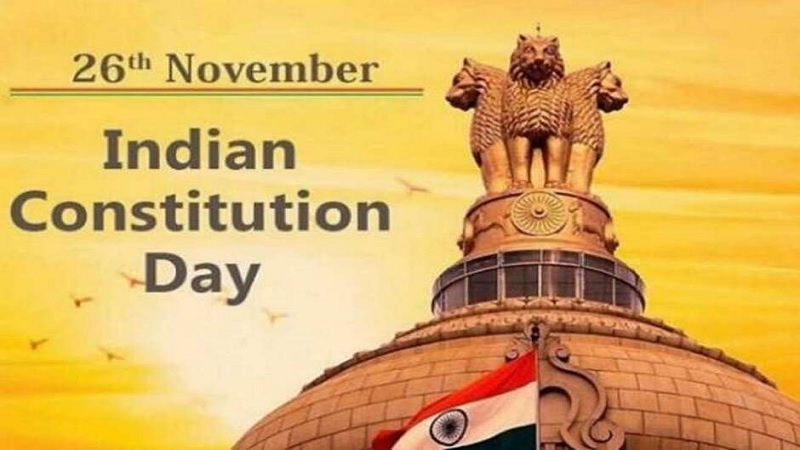 Image Courtesy:english.jagran.com
Image Courtesy:english.jagran.com
On Constitution Day 2020, Indian farmers and workers are on the streets protesting the recently passed Agricultural Bills and anti-worker ordinances. This even as various state governments deploy police and other security personnel to stop them, a scene harking back to the days of the ‘Satyagrah’ or Gandhi’s non-violent freedom struggle.
But didn’t India achieve freedom in 1947? We gave ourselves a Constitution too, on this very day in 1949… on November 26. Though it officially came into effect on January 26, 1950 making India the Republic one could be proud of.
In fact, much of the pride on takes in being Indian comes from the wonderfully inclusive Constitution that protects and defends rights and freedoms of all Indians. The Preamble itself states:
“WE, THE PEOPLE OF INDIA, having solemnly resolved to constitute India into a SOVEREIGN SOCIALIST SECULAR DEMOCRATIC REPUBLIC and to secure to all its citizens: JUSTICE, social, economic and political; LIBERTY of thought, expression, belief, faith and worship; EQUALITY of status and of opportunity; and to promote among them all FRATERNITY assuring the dignity of the individual and the unity and integrity of the Nation; IN OUR CONSTITUENT ASSEMBLY this twenty-sixth day of November, 1949, do HEREBY ADOPT, ENACT AND GIVE TO OURSELVES THIS CONSTITUTION” |
The idea of a Constituent Assembly, however, was first floated as far back as 1934 by MN Roy and it became an official demand of the Indian National Congress in 1935. C Rajagopalachari voiced the demand for a Constituent Assembly based on adult franchise on November 5, 1939.
The Constituent Assembly was founded on December 6, 1946 to draft the Constitution of India. Dr. BR Ambedkar served as the chairman of the drafting committee. He is to this day hailed as the architect of the Indian Constitution. As many as 15 women scholars also contributed in this mammoth endeavour. The women who helped draft the Constitution were; Ammu Swaminathan, Dakshayani Velayudhan, Begum Aizaz Rasul, Durgabai Deshmukh, Hansa Jivraj Mehta, Kamla Chaudhary, Lila Roy, Malati Choudhury, Purnima Banerjee, Rajkumari Amrit Kaur, Renuka Ray, Sarojini Naidu, Sucheta Kriplani, Vijaylakshami Pandit and Annie Mascarene.
There were many discussions and debates that preceded the finalisation of the draft and the adoption of the Constitution. The Constituent Assembly debated the Preamble on October 17, 1949. They debated the inclusion of ‘God’ and ‘Gandhi’.
Apprehensions over a violation of the fundamental right to freedom of faith led to ‘God’ being excluded from the Preamble, with members voting 68-41 against it by a show of hands. Meanwhile, a member felt that Gandhi should not be associated with a Constitution based on American Supreme Court cases and the Government of India Act[1].
[1] https://www.constitutionofindia.net/constitution_of_india/preamble